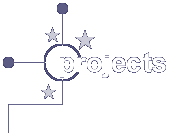














 |
 |
 |
 |
 |
 |
 |
 |
 |
 |
 |
 |
 |
 |
 |
||||||
 |
The Role of Family and Education in Transforming Global Militarism to Productive Peaceful Endeavors January 2005 By Abraham M. George The weapons used in 1945 were very small compared to most of the approximately 30,000 nuclear weapons that exist today. A single modern weapon, exploded either intentionally or accidentally over a large city, is capable of killing millions of people. The use of just one 150-kiloton nuclear bomb over a city like Bombay could cause up to 9 million deaths. If a larger number of weapons are exploded in warfare, the overall consequences will include not only death and short- and medium-term injuries of unimaginable proportions but also severe environmental effects, disruption of transportation and delivery of food, fuel, and basic medical supplies, and possible famine and mass starvation on a global level. The effects of a nuclear explosion are so devastating that many people today are in denial about the continued threat. And a succession of arms control agreements and the end of the Cold War have combined to create a popular myth that the threat of nuclear war has ended. Billions of dollars are pouring into new technologies as countries attempt to modernize their nuclear and conventional arsenals. This kind of m ilitarism and its related expenditures toward it is harmful because it consumes both natural and human resources which could be better employed in useful endeavors. One must oppose violence in all its forms: wars, and assaults against individuals, families, nations, wildlife and the environment. We also must recognize that threats, intimidation and fear can be as destructive as physical violence. In keeping with our belief in nonviolent conflict resolution, we must oppose all forms of terrorism -- whether perpetrated by states, organizations or individuals. On the personal as well as the national level, means can never be separated from ends. Peace is not just the absence of violence; it is a willingness to resolve conflict in a constructive manner with a spirit of good will and respect. In the words of Martin Luther King, "I knew that I could never again raise my voice against the violence of the oppressed in the ghettos without having first spoken clearly to the greatest purveyor of violence in the world today — my own government ... I'm convinced that if we are to get on the right side of the world revolution, we as a nation must undergo a radical revolution of values ... When machines and computers, profit motives and property are considered more important than people, the giant triplets of racism, militarism and economic exploitation are incapable of being conquered. " The challenge we as a human race face today is about how to get on the “right side” – of peace, no-violence, disarmament, and development of human and natural resources for productive use. The starting point is the family where we bring up the next generation of humanity. It is where we have an opportunity to change the mindset away from today's militarism. It is where we instill humane values in our children. It is not enough to focus our energies on making our children “successful” in life. In the words of Albert Einstein, “Try not to become a man of success but rather try to become a man of value.” What we as adults need to impart in our children is a different kind of education that emphasizes humane values, such as honesty, integrity, transparency, kindness, and generosity. Our children must grow up with the conviction that non-violence and peaceful resolution of conflict are essential to our survival as a human race. The world faces three interrelated challenges: the challenge of security, including the risks associated with weapons of mass destruction; the challenge of poverty and suffering; and the challenge of environmental sustainability. In order that we face up to these challenges before it is too late, a global dialogue must begin immediately. There is no better place for such dialogue to start than at our homes and classrooms. The unanswered question is: how will this dialogue begin?
|